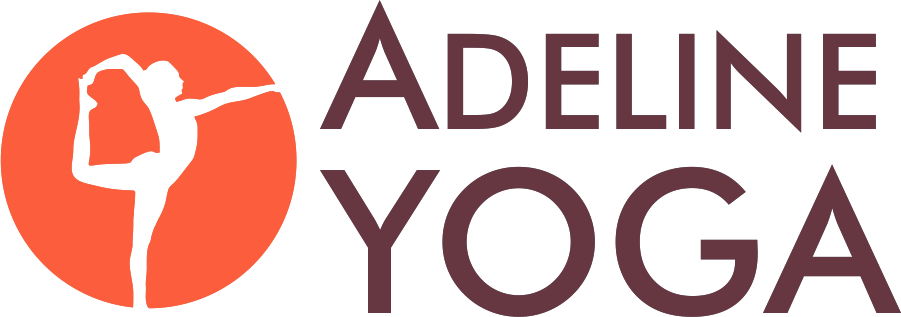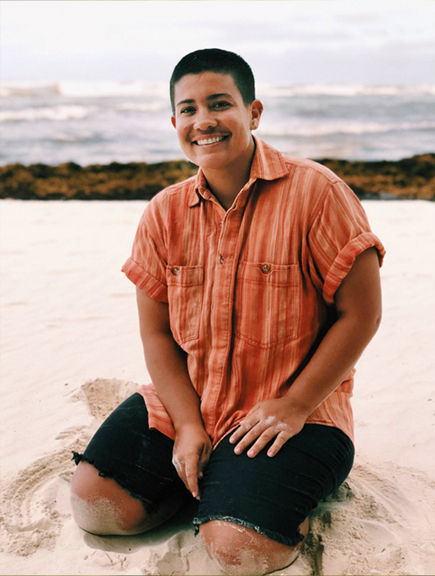On Friday, March 8th, Andrés Leon and Nick Krieger will facilitate a conversation on gender identity at Adeline Yoga. This free event is for any student or teacher of yoga who wants to cultivate awareness and develop the courage to act. All all are welcome, regardless of gender identity. You can learn more about the event here and more about Andrés in the interview below!
Will you tell readers a bit about yourself and the path you traveled to yoga? What draws you to Iyengar yoga, specifically?
I grew up in Bakersfield, CA and went to college in Los Angeles, receiving my Bachelor of Arts degree in Psychology from Loyola Marymount University. I was also a NCAA Division 1 athlete, which always surprises people because now, I am pretty much as non-competitive as it gets. I’ve spent time in New York City, where I worked as an educator in a 4th grade classroom in the South Bronx, but ultimately, I found refuge in the Bay Area. I have had many “jobs” professionally in my adult life from working on the self-driving car project at Google X to trying my hand at landscape gardening. However, the bulk of my professional career has been spent as an educator and youth advocate. I’ve worked with teens in San Francisco doing community organizing and social justice work through experiential and project-based learning, and currently, I am a high school mentor for an organization whose mission is to give young people the opportunity to strengthen the skills they need to succeed in school and life.
I came to yoga with a broken body and heart. I am a queer, transgender, and Latinx person, so yoga for me is a practice of being present and integrating, accepting, and liberating all of the identities I come to the practice with. The yogic teachings have grounded me in my connection to self and therefore everyone around me — it is through my asana practice that I am able restore and heal so that I can show up in the larger collective with compassion and a capacity to help and be of service. I have a deep connection to Iyengar yoga because it is a tradition that really meets you where you’re at. I believe it’s accessible for all bodies and it stresses the importance of building foundation and trust. It is by nature a healing-centered movement practice that places well-being and longevity at the center of its pedagogy. As someone who has experienced a lot of trauma, being in my body has not always been a safe place. However, in the Iyengar method, we practice to be present with feeling and experiencing every muscle and every bone – we are asked to learn and relearn why we move the way we do and why that awareness is important. This practice has brought me back to my body, and therefore, my heart and spirit. I am also in a yoga and mindfulness teacher training for people of color, and I am studying under the guidance of Rolf Gates and Spring Washam. When I am not in yoga and spiritual community (which feels like all the time!!) I enjoy spending time with my loved ones, writing, being in nature, barbering, traveling, and hanging out with my two cat children.
Why is the yoga community a particularly important place for conversations around gender identity?
Yoga community is an important place to have conversations around gender identity because it is a refuge where people of many varying genders exist already and should continue to be a place where people of all gender identities feel welcome and supported. I think a dialogue is important to bring us closer to one another, to be curious and open to learning and understanding. Yoga is a practice that helps us come into and know our bodies and experiences, which I believe is such an important process for all of us and especially those of us who experience a body and gender identity that is constantly under attack by the government and society at large. Yoga community should be a place where people can come as we are, let go, and heal regardless of our gender. Having hard or nuanced conversations is so important so that we continue making yoga spaces as accessible and inclusive as possible to anybody who seeks the yogic teachings.
In your mind, how do yogic sadhana and social justice overlap? How do they inform one another?
Martin Luther King Jr. says, “No one is free until everyone’s free.” This for me is the intersection of yogic sadhana and social justice. The two really cannot exist without one another. My sadhana is about honoring our unique stories, acknowledging historical and generational oppression, practicing radical self-care, and moving as a collective toward internal and external liberation. I believe social justice occurs from the inside out, as does yogic sadhana. It is a daily practice of coming home to aligning what we value with what we wish to witness in the world. When we heal ourselves, we can show up ready to resist systems of oppression. When we heal ourselves, we let our sadhana come through us in conflict. We become the teachings and the teachings meet the fight for freedom and equity with grace and ease. It is both active and passive. It is both internal and external. It is both personal and interconnected.
What goals do you have for the upcoming workshop at Adeline? What do you hope participants will gain by attending? What do you hope they will give back to their communities?
I hope attendees learn something new (small or large!) and take away to their communities a refreshed compassion and allyship to transgender and gender non-conforming people. My intentions for the evening are to show up with radical honesty in sharing my story, to bring people closer to the transgender experience, to cultivate a deeper sense of inclusivity amongst the larger Adeline Yoga community, and to create a brave container for attendees to show up as they are and where they are.
What would you say to someone who is considering coming to the workshop but is unsure what their role in the conversation is, or is unsure whether the workshop is “for them?”
I would just encourage people to have courage in the discomfort and unknowingness. Even if you simply show up and listen, you are participating. This is the beginning of a deep and nuanced dialogue. There is no right or wrong way to be or show up to the discussion.


JA says
This voice is so articulate, tender and sure. Thank you Andres.